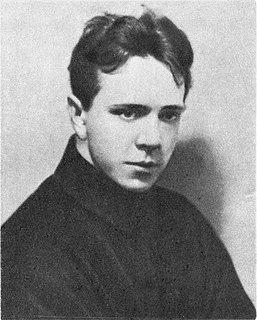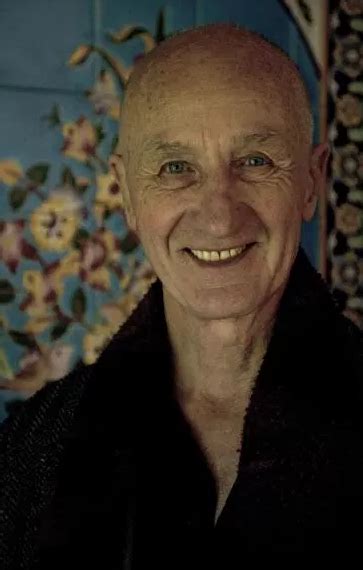A Quote by Marcel Proust
The reason why life may be judged to be trivial although at certain moments it seems to us so beautiful is that we form our judgment, ordinarily, not on the evidence of life itself but of those quite different images which preserve nothing of life-and therefore we judge it disparagingly.
Related Quotes
What may be the significance of so many forms of "spirituality" on this planet that are antagonistic to "life" - and Christianity at the head of that list, with its "calumny" against life, its faith that just because nothing in life is eternal therefore life itself contains no value, nothing that makes it worth living, investing our souls in, committing our consciences to?
What is it that we in the theatre give? Instead of images on canvas or in the form of statuary or music, we give our body, voice, feelings, will, imagination — we give a form of pulsating art to life itself; we give it to our characters and we give it to our audiences. Nothing, absolutely nothing remains for us save the pleasure of having given pleasure.
You see, gentlemen, reason is an excellent thing, there’s no disputing that, but reason is nothing but reason and satisfies only the rational side of man’s nature, while will is a manifestation of the whole life, that is, of the whole human life including reason and all the impulses. And although our life, in this manifestation of it, is often worthless, yet it is life and not simply extracting square roots.
The Hour-Hand of Life --- Life consists of rare, isolated moments of the greatest significance, and of innumerably many intervals, during which at best the silhouettes of those moments hover about us. Love, springtime, every beautiful melody, mountains, the moon, the sea - all these speak completely to the heart but once, if in fact they ever do get a chance to speak completely. For many men do not have those moments at all, and are themselves intervals and intermissions in the symphony of real life.
I will not judge a person to be spiritually dead whom I have judged formerly to have had spiritual life, though I see him at present in a swoon (faint)as to all evidences of the spiritual life. And the reason why I will not judge him so is this -- because if you judge a person dead, you neglect him, you leave him; but if you judge him in a swoon,(faint) though never so dangerous, you use all means for the retrieving of his life.
A belief, however necessary it may be for the preservation of a species, has nothing to do with truth. The falseness of a judgment is not for us necessarily an objection to a judgment. The question is to what extent it is life-promoting, life-preserving, species preserving, perhaps even species cultivating. To recognize untruth as a condition of life--that certainly means resisting accustomed value feelings in a dangerous way; and a philosophy that risks this would by that token alone place itself beyond good and evil.
There is no means of testing which decision is better, because there is no basis for comparison. We live everything as it comes, without warning, like an actor going on cold. And what can life be worth if the first rehearsal for life is life itself? That is why life is always like a sketch. No, "sketch" is not quite a word, because a sketch is an outline of something, the groundwork for a picture, whereas the sketch that is our life is a sketch for nothing, an outline with no picture.
In all things, therefore, where we have clear evidence from our ideas, and those principles of knowledge I have above mentioned, reason is the proper judge; and revelation, though it may, in consenting with it, confirm its dictates, yet cannot in such cases invalidate its decrees: nor can we be obliged, where we have the clear and evident sentience of reason, to quit it for the contrary opinion, under a pretence that it is matter of faith: which can have no authority against the plain and clear dictates of reason.
Nothing that is worth doing can be achieved in our lifetime; therefore we must be saved by hope. Nothing which is true or beautiful or good makes complete sense in any immediate context of history; therefore we must be saved by faith. Nothing we do, however virtuous, can be accomplished alone; therefore we must be saved by love. No virtuous act is quite as virtuous from the standpoint of our friend or foe as it is from our standpoint. Therefore we must be saved by the final form of love which is forgiveness.
This question of love begins and ends with the willingness to be welcoming to one's own experience as a loving action towards oneself. It may be dark, it may be light, it may be joyous, it may be sorrowful, but it's your experience, and therefore, your life. As we have that kind of loving response towards our own life, then life itself in terms of the outside world, begins to feel different.
We know nothing of the trials, sorrows and temptations of those around us, of pillows wet with sobs, of the life-tragedy that may be hidden behind a smile, of the secret cares, struggles, and worries that shorten life and leave their mark in hair prematurely whitened, and a character changed and almost recreated in a few days. Let us not dare to add to the burden of another the pain of our judgment.
The life of a family is filled with beautiful moments: rest, meals together, walks in the park or the countryside, visits to grandparents or to a sick person... But if love is missing, joy is missing, nothing is fun. Jesus gives always gives us that love: he is its endless source. In the sacrament he gives us his word and he gives us the bread of life, so that our joy may be complete.
Life seems somehow less shocking, painful, and lonely - and more hopeful, agreeable, and beautiful - when our experiences are confirmed by those of others. Although each of us is unique, there are familiar responses and doubts and joys that let us know we have kin. We are not, after all, too strange to live.






































